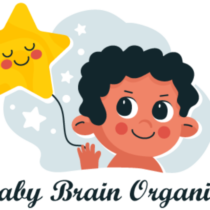This article discusses the unique development of a human infant’s brain at birth. In just a few weeks, so much happens to their brains that your baby can begin to recognize their mother’s voice and distinguish between blue and green.
What are the stages of brain development?
The human brain develops in the womb and continues to grow and change throughout life. The stages of brain development are a prenatal, early infant, middle infant, late infant, toddler, preschooler, school-age child and adolescent.
How is the brain wired?
The brain is wired in a particular way during early development. This wiring can significantly impact how the brain functions and interacts with the rest of the body.
Much of this wiring is done in the first few weeks of life, and it can be challenging to understand precisely what is happening.
One of the most critical events in early brain development is when the neural tube closes. This process creates a protected space for the developing brain and spinal cord. It also ensures that signals from each part of the brain are coordinated correctly.
During this time, some essential connections between different brain parts are made. These connections will play a role in later cognitive function and behaviour.
The following critical stage in brain development is when neurons are born. Neurons are cells that enable information processing in the brain.
They are created in large numbers during early development and will continue to grow throughout life.
One of the essential things that neurons do is connect different parts of the brain. This process allows information to be transferred between different brain areas more easily.
This is why it’s so essential for newborns to learn how to communicate with their caregivers. Each new interaction will help build
The changing face of autism
As autism rates continue to rise, paediatricians and parents increasingly seek information about the condition. With so much change happening in the autism community,
it can be hard to track what’s new. Here we round up some of the most interesting autism-related news from the past month.
1. A study published in JAMA Pediatrics found that infants exposed to prenatal mercury levels above the federal safe limit risk developing an autism spectrum disorder (ASD) later in life.
The study also found that children with ASD had higher levels of mercury in their hair than those without ASD.
2. Researchers at Brown University have identified a protein in the brain that may be responsible for specific symptoms of ASD.
The protein, called calpain-10, is expressed in cells associated with social interaction and communication. The study has yet to be published in a peer-reviewed journal, but it is currently being presented at a scientific meeting.
3. In another study presented at a scientific meeting, researchers found that children with ASD have markedly different brain activation patterns
when viewing facial expressions compared to typically developing children. The study suggests that abnormalities in facial recognition may play
Conclusion
Birth is a miraculous event, and while you may be anxious and full of questions, your baby’s brain is busy working its magic.
This article will explore some of the incredible things that happen to your baby’s brain at birth. From helping them learn to see and hear the world around them to regulating their emotions,
your baby’s brain is constantly developing during these early days. We hope this information has given you more insight into what is happening inside your loved one’s head during those first few hours after birth.




